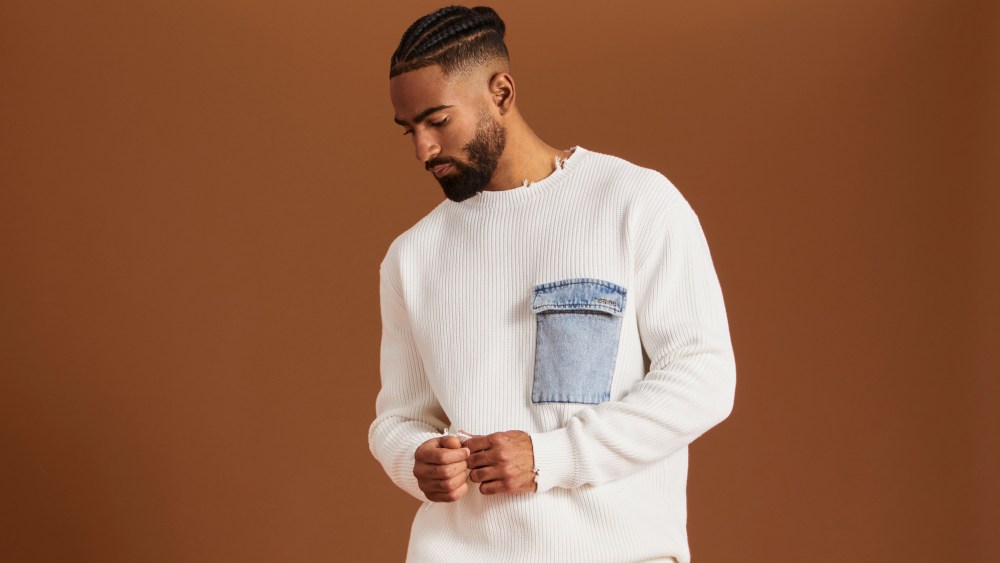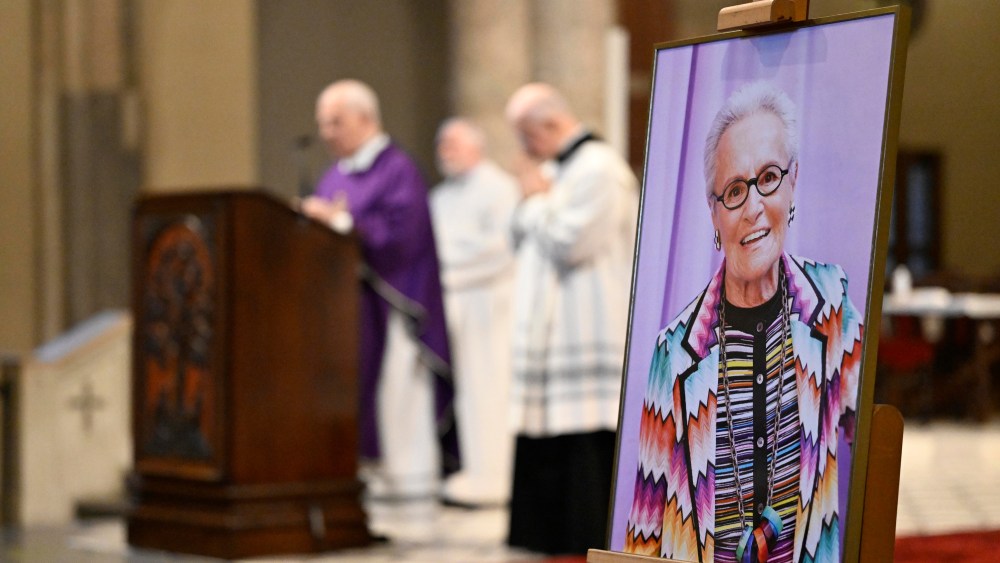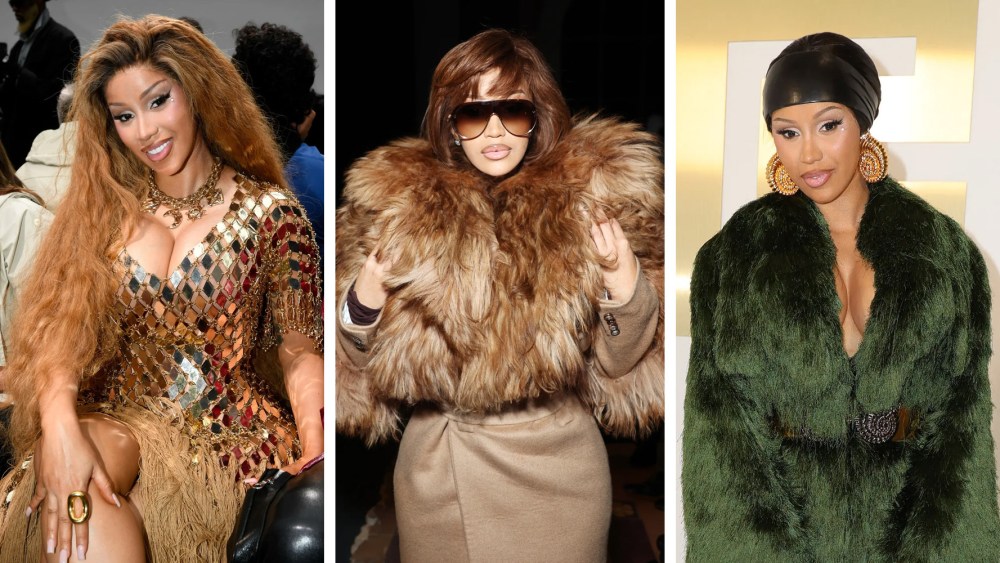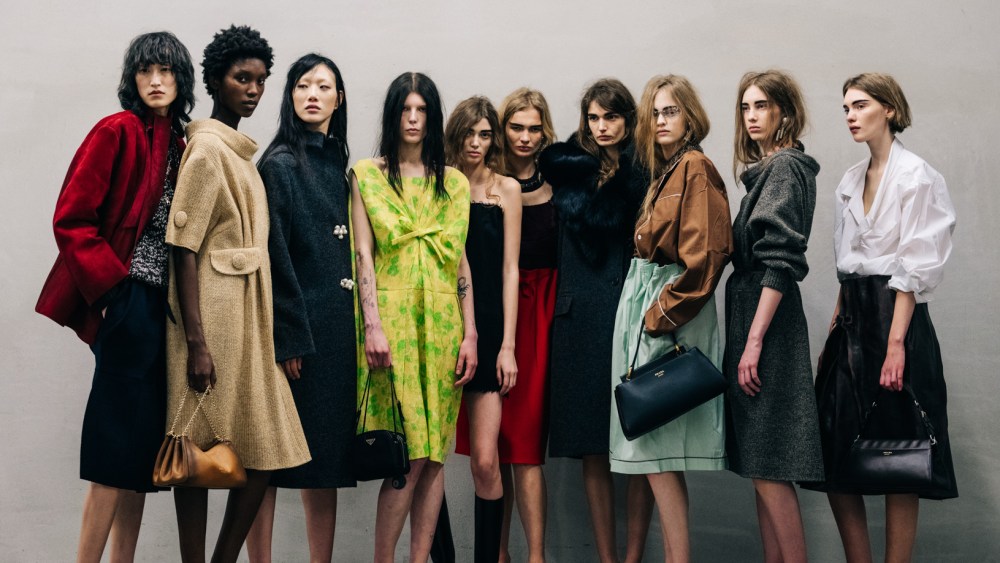THIS IS FOR THE CHICAGO COLLECTIVE ISSUE, SHIPPING JULY 29 AND DISTRIBUTED ON AUG. 3 — PHOTOS OF ORIGINAL MADRAS TK
Ser.O.Ya
If Ohad Seroya hadn’t “gotten stuck” — his words — in Miami during the height of the pandemic, the Ser.O.Ya label may not exist.
The Israeli immigrant already had a successful women’s brand, Retrofete, but no one was buying the sequined party dresses he was designing for that label when they couldn’t leave their houses. So Seroya started creating more casual essentials centered around knits that blended vintage Americana with a modern preppy aesthetic and were more appropriate for the times.
“I always created girly, going-out clothes,” he said. “But I wanted something for myself.”
You May Also Like
Since launching Ser.O.Ya in 2020, the label has become a favorite of Latin artist Maluma as well as Travis Kelsey, Nick Jonas, John Legend and other celebrities who are drawn to its comfortable, seasonless staples.
As the brand describes itself: “Ser.O.Ya is a New York-based ready-to-wear label founded with the intention to upgrade and refine your wardrobe. With a focus on crafting effortlessly cool and timelessly luxurious designs — Ser.O.Ya creates…everyday essentials in the form of breathable knits, vintage-inspired denim, and ultra-luxe fabrications.”

He said his goal was to create something wearable for the beach or the city streets that is comfortable yet fashionable. His signature pieces include a cotton knit short with a drawstring waist, slanted side pocket and a distressed hem, as well as another option with cargo pockets. A terrycloth set of shorts and shirt is also among his best sellers.
“We do a lot of sets,” he said. “Our guy likes sets.”
For spring, Seroya is offering updates to some of his most popular styles including shorts in corduroy with cargo pockets; a knit short and sweater set with denim pockets and a distressed collar; sweatshirts emblazoned with Seroya 1985, the year of the designer’s birth; what he described as the “perfect white tee;” a polo with an oversize print of a palm tree as well as a crocheted model, and an oversize hoodie.
The color palette includes dusty pink, teal, tan or terracotta and earth green.
The collection, which is carried at Neiman Marcus, Saks Fifth Avenue, Fred Segal, Halls and other department and specialty stores, retails for $98 to $228. “We have sharp pricing because we want people to shop and enjoy,” Seroya said.
Original Madras Trading Company
Original Madras Trading Company is the real deal.
The company traces its roots to the early 1970s when Ranjit Shah, the grandfather of its current owner, Prasan Shah, emigrated from what was then known as Madras, India, to New York City with a trunk full of fabrics from his home country to sell to American companies such as Brooks Brothers, Ralph Lauren, J. Crew and Filson.
Today, Shah continues to supply many of the same businesses with checked fabric and garments woven and manufactured in the company’s factory in India. In 2020, Original Madras began to produce apparel handwoven on wooden looms under its own name. Men’s shirts in a rainbow of colors, both short- and long-sleeved, are offered along with trousers, shorts, blazers, bucket hats, robes and pajamas along with beach towels and mats.

The company now sells its wares to around 70 retailers around the world — 50 of which are in the U.S. or Canada. That includes heavyweights such as Neiman Marcus and Bergdorf Goodman.
“It’s slow fashion,” Shah said, adding that weavers can only make around three meters of fabric in one day. A machine can make that same quantity in 25 to 35 minutes.
He said the brand’s “bread-and-butter” is its button-down shirts, which start at $145. Blazers are the most expensive at $295. “We’re taking a margin hit but we’ve challenged ourselves to change the American consumers’ mindset on Indian textiles.”
He believes that much like Champagne — only bottles made in the Champagne region of France can be called by that name — real madras should be made in the area where it originated. The southern Indian city of Madras is now called Chennai. Its definition is a yarn-dyed plain-weave cotton cloth with a minimum two-color irregular pattern.
For the spring collection, Shah will continue to expand his offering of short- and long-sleeve madras shirts. In addition, Ikat fabrics — created by dyeing sections of yarns prior to weaving to create a distinct pattern — will be introduced as well as a new fabric of completely undyed cotton. Handloomed denim in either indigo or white will also be added.
Relwen
Jamie Rupp had a strong resume by the time he founded Relwen in 2007. Rupp, whose parents were both in the retail business, followed in their footsteps, working first as a buyer for Bergdorf Goodman and then the head of men’s design at Abercrombie & Fitch.
Through it all, Rupp was always attracted to what he refers to as “rugged masculine product that doesn’t get old in your closet.”
He was always inspired by vintage-inspired heritage product influenced by American workwear or what he refers to as “real menswear” — pieces that will remain relevant and last for 100 years.
One of the first garments he made was a military parka with a myriad of authentic details that he proudly displays by photographing every piece inside out. The Relwen website showcases some of these details such as bound and reinforced seams, recessed buttonholes to reduce abrasion, working sleeve buttons, fleece-lined pockets and other extras built into every piece.

The assortment includes blazers that are more akin to hunting jackets, button-down plaid shirts, mock turtlenecks, henleys, polos, chinos, cargo pants and shorts that Rupp described as “gutsy and reliable.
“You could call us fashion workwear,” Rupp added, noting that the line uses natural fabrics such as cotton rather than the synthetics. “There’s no permanent press or anti-microbial fabrics — not for our guys,” he said.

For the spring collection, Relwen will offer a lot more linen options and fabrics that are soft rather than harsh on the skin. He pointed to work shirts, blazers and supply pants that are now being offered in cotton/linen blends.
In addition to its own online business, Relwen sells Huckberry as well as other specialty stores including Wittmore in L.A., Henry Lehr on New York’s Long Island, Wright’s in Manhattan Beach and others.
The line’s logo is a barn swallow which the brand describes on its site as an “adaptable bird” which nests in manmade structures and uses them for many years rather than building a new one every year. “All of this reinforces our mission,” Relwen said, “to create the kind of clothing that works and will remain relevant and lasting a hundred years from now.”



